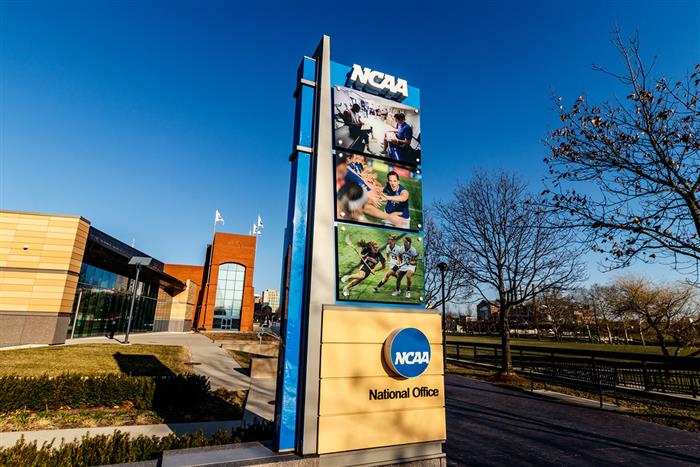
Log In


In response to the NCAA's vote to allow athletes to profit from their names, images and likeness, Senator Richard Burr of North Carolina has proposed taxing those scholarships. Senator Burr tweeted: "If college athletes are going to make money off their likenesses while in school, their scholarships should be treated like income. I'll be introducing legislation that subjects scholarships given to athletes who choose to 'cash in' to income taxes."
The National Collegiate Athletic Association's governing board has voted unanimously to move forward to "modernize" its rule in allowing college athletes to profit from their names, images and likenesses "in a manner consistent with the collegiate model." Athletes would be allowed to enter contracts with corporations and third-parties to receive compensation for their personal brand or celebrity, so long as they do not become employees of the university.
Over a dozen states and two U.S. congressmen began this discussion to overrule the association's governance which currently bars athlete from competition if they are found to benefiting from their name, image or likeness. For a long time, the NCAA has separated collegiate and professional sports by upholding its definition of amateurism and disallowing payment to athletes, "other than in the form of colleges paying for the full cost of attendance or providing other types of scholarships", according to Inside Higher Education.
In late September of this year, a California bill was signed into law prohibiting California schools from punishing their athletes for accepting endorsement money starting in January 2023. The NCAA's new rules will not follow the "California model" of a "virtually unrestricted market".
In response to this initiative, Senator Burr responded that he would introduce a bill that would make scholarships a form of taxable income for any athlete who choose to cash in on their likeness. The purported percentage of athletes who have sufficient face and name to gain substantial income from endorsements is relatively small. Currently, most scholarships that are used to pay college tuition and fees are not taxable as income.
"We must embrace change to provide the best possible experience for college athletes," claims Michael Drake, the chairman of the Board of Governors. The board is working fast to create rules that are "transparent, focused and enforceable" and do not create a competitive imbalance. The goal is to implement the rules by January 2021.